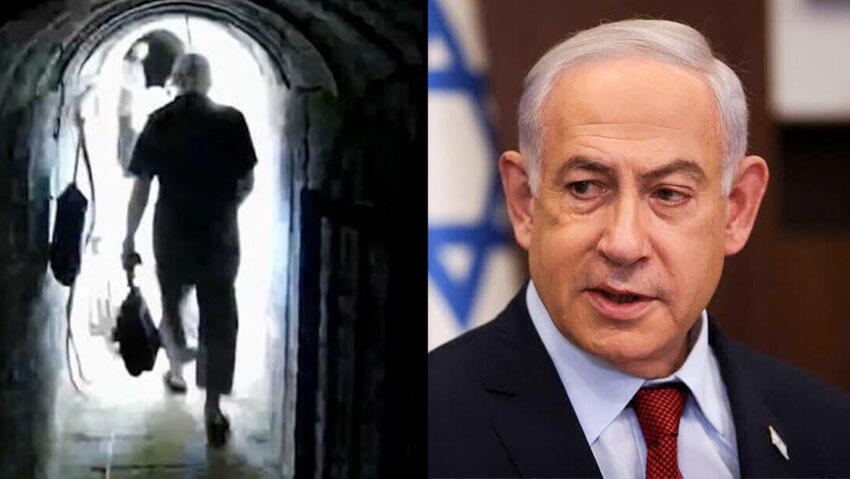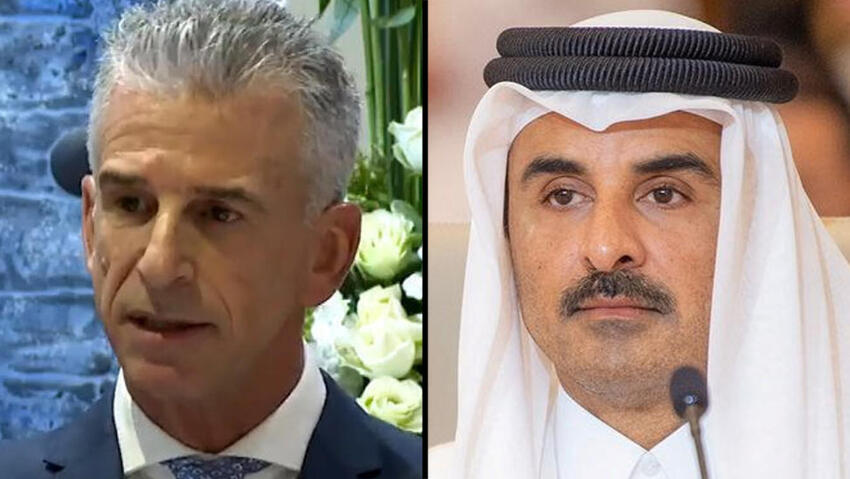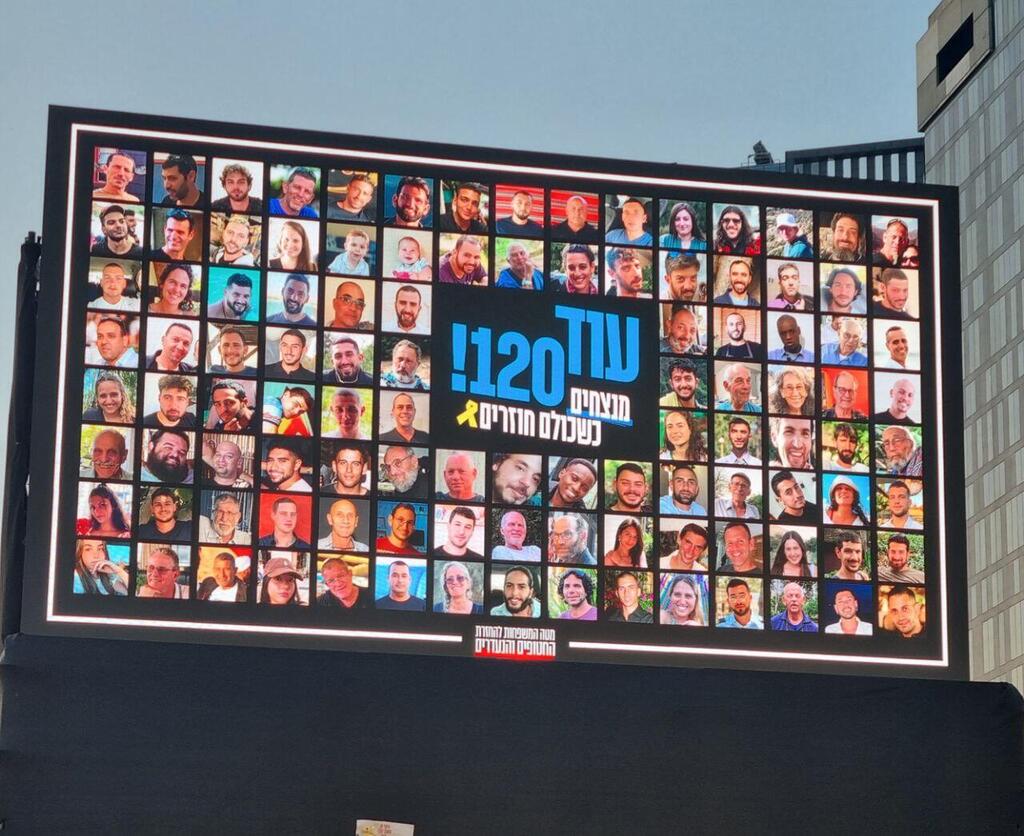Getting your Trinity Audio player ready...
Hamas has given initial approval for a U.S.-backed proposal for a phased cease-fire deal in Gaza, dropping a key demand that Israel give an up-front commitment for a complete end to the war, a Hamas and an Egyptian official said Saturday.
Israeli officials primarily assessed in recent days that negotiations would take at least two to three weeks. Despite senior Hamas official Osama Hamdan saying Friday that he expected an Israeli response by Saturday evening, the Prime Minister's Office announced that a negotiation team would only depart for further talks next week. The Prime Minister's Office noted that there are still gaps between the sides.
3 View gallery


Hamas leader in Gaza Yahya Sinwar and Prime Minister Benjamin Netanyahu
(Photo: IDF Spokesperson's Unit, Yonatan Sindel)
The two officials, who spoke on condition of anonymity to discuss ongoing negotiations, said Washington's phased deal would first include a "full and complete" six-week cease-fire that would see the release of a number of hostages, including women, older people and the wounded, in exchange for the release of hundreds of Palestinian prisoners. During the 42 days, Israeli forces would withdraw from densely populated areas of Gaza and allow the return of displaced people to their homes in northern Gaza, the officials said.
Over that period, Hamas, Israel and mediators would negotiate the terms of the second phase that could see the release of the remaining male hostages, both civilians and soldiers, the officials said. In return, Israel would free additional Palestinian prisoners and detainees. The third phase would see the return of any remaining hostages, including bodies of dead captives, and the start of a years-long reconstruction project.
Hamas still wants "written guarantees" from mediators that Israel will continue to negotiate a permanent cease-fire deal once the first phase goes into effect, the officials said.
The Hamas representative told The Associated Press the group's approval came after it received "verbal commitments and guarantees" from the mediators that the war won't be resumed and that negotiations will continue until a permanent cease-fire is reached. "Now we want these guarantees on paper," he said.
Hamas has expressed concern Israel will restart the war after the hostages are released. Israeli officials have said they are worried Hamas will draw out the talks and the initial cease-fire indefinitely, without releasing all the hostages.
Meanwhile, Palestinian Islamic Jihad (PIJ) Deputy Secretary-General Mohammad al-Hindi, told the Palestinian Quds network on Saturday that Palestinian terror organizations feel there is a "favorable climate" for advancing negotiations.
"The army is exhausted and has no ability to achieve gains on the ground. It is ready for a deal at any cost," he claimed. "The resistance presented ideas on the issues at hand in a way that does not conflict with the fundamental goals of stopping Israeli aggression and complete withdrawal from the Gaza Strip."
Last Wednesday, the Prime Minister's Office, on behalf of Mossad, announced that Qatar and Egypt had conveyed Hamas' response to the proposed hostage deal to the negotiating team. Security officials at the time said it was "the best offer so far" and claimed it provided "a basis to move forward."
3 View gallery


Mossad Director David Barnea and Qatari Emir Tamim bin Hamad Al Thani
(Photo: GPO, Reuters/ Saudi Press Agency/Handout)
Despite this announcement and Netanyahu's approval for the negotiation team to travel to Doha, the Prime Minister's Office issued a statement on behalf of a "senior security official," saying that "Hamas continues to insist on a principal clause in the framework that would prevent Israel from resuming combat after Phase 1, which is unacceptable to Israel."
Subsequently, Hamas officially announced its agreement to a cease-fire, according to a statement delivered by the delegation to Hezbollah Secretary-General Hassan Nasrallah. According to two sources familiar with the matter, Nasrallah welcomed this step. However, it is unclear what exactly the supposed agreement entails.



